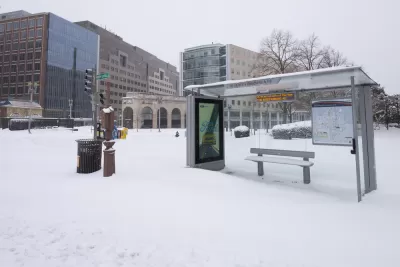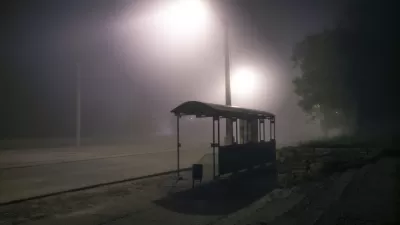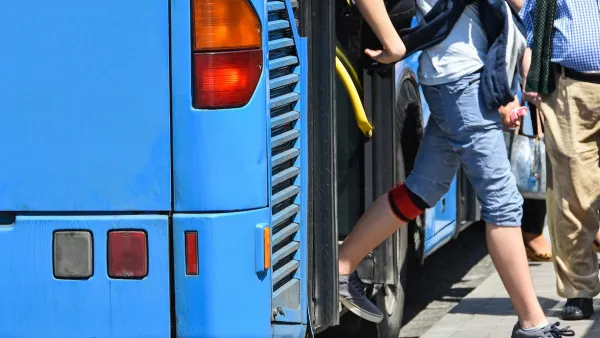The agency says a new software update will remove out-of-service buses from maps so riders aren’t ‘ghosted’ by buses that never show up.

After persistent rider complaints that D.C. Metro buses frequently disappeared from the real-time busETA tracking website, the agency says it has upgraded its software to remove out-of-service buses from user-facing maps, including busETA, Google Maps, and Transit.
According to an article by Colleen Grablick in DCist, the agency also promises to make the electronic station displays more accurate in the coming weeks, eliminating the ‘ghost buses’ that have made bus schedules unreliable.
The ‘ghost bus’ problem isn’t just an inconvenience, Grablick explains. “Stops can get more crowded when a scheduled bus doesn’t arrive, causing the next bus to stop frequently, slowing down travel times.”
The announcement follows other recent good news for D.C. transit riders: improved service starting in May, free bus rides starting next July, and a new low-income fare program.
FULL STORY: Metro’s Buses Won’t Ghost You Anymore, Transit Agency Says

Montreal Mall to Become 6,000 Housing Units
Place Versailles will be transformed into a mixed-use complex over the next 25 years.

Planetizen Federal Action Tracker
A weekly monitor of how Trump’s orders and actions are impacting planners and planning in America.

DARTSpace Platform Streamlines Dallas TOD Application Process
The Dallas transit agency hopes a shorter permitting timeline will boost transit-oriented development around rail stations.

Interactive Map Reveals America's “Shade Deserts”
Launched by UCLA and American Forests to combat heat-related deaths, the tool maps the shade infrastructure for over 360 U.S. cities.

Bicycles and Books — In Sacramento, Libraries Now Offer Both
Adult library card holders can check out e-bikes and e-trikes for up to one week.

Colorado Landfills Emit as Much Pollution as 1M Cars
Landfills are the third-largest source of methane pollution in Colorado, after agriculture and fossil fuel extraction.
Urban Design for Planners 1: Software Tools
This six-course series explores essential urban design concepts using open source software and equips planners with the tools they need to participate fully in the urban design process.
Planning for Universal Design
Learn the tools for implementing Universal Design in planning regulations.
City of Mt Shasta
City of Camden Redevelopment Agency
City of Astoria
Transportation Research & Education Center (TREC) at Portland State University
US High Speed Rail Association
City of Camden Redevelopment Agency
Municipality of Princeton (NJ)





























